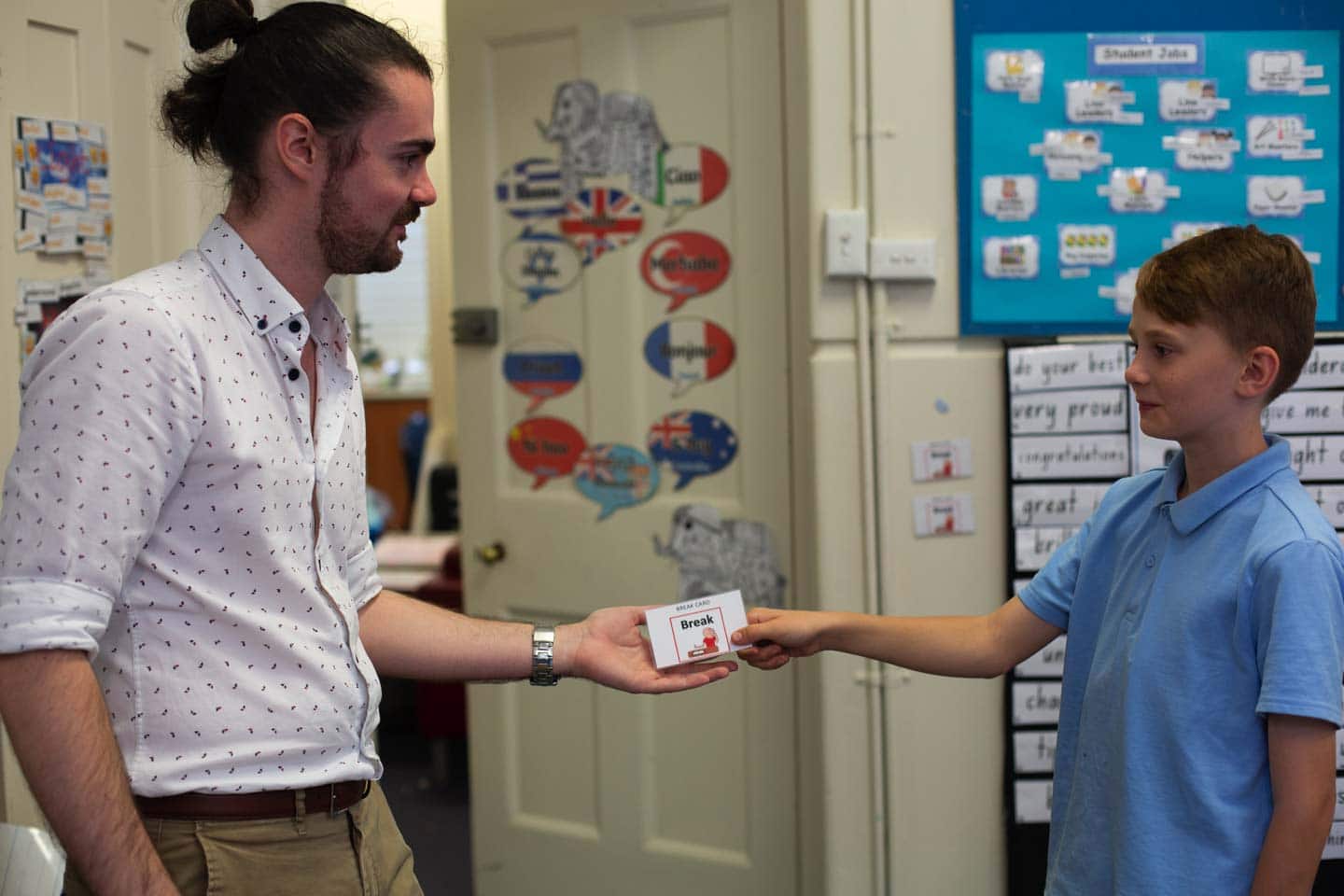While most teachers understand the importance of positive reinforcement, research indicates that praise is more often focused on academic performance.
Positive Teaching emphasises the importance of praise related to classroom social behaviour, which increases time spent on-task, and leads to stronger academic performance.

An imbalance of praise and reprimand
For responses to student academic performance – answering questions, written work, completion of maths problems and so on – teachers typically give nearly four times as much praise as they give reprimands. But for classroom social behaviour – keeping to the rules, not disturbing others, getting on with their work quietly – teachers typically give four times as many reprimands as praise.
As head of MultiLit’s Research Unit, Emeritus Professor Kevin Wheldall explains, “Society tends not to applaud desirable behaviour. We expect people to behave in a socially responsible way and we punish them if they don’t. This is not the most effective way to influence adult behaviour and can be particularly harsh for those of school age, who are still trying to learn how to behave.”
Common challenges in Australian classrooms
Initial teacher training commonly lacks effective classroom behaviour strategies, which many teachers have had to learn by trial and error ‘on the job’. About half of Australian teachers feel that they spend more time on order and control problems than they should have to. Typical challenges, such as talking out of turn or distracting other children, are not threatening behaviours; but they waste time and are irritating, stressful and ultimately exhausting for teachers. Through careful control of the context in which behaviours occur and the consequences following behaviour, disruptive classrooms can be transformed into a more positive and pleasant environment for both teacher and students.
MultiLit’s positive approach can help
MultiLit’s Positive Teaching and Learning Workshop 1 has been developed especially for Australian primary schools and is now available via self-paced eLearning. The PD is particularly beneficial for those in their first five years of teaching. Based on research carried out by Emeritus Professor Kevin Wheldall AM and Dr Robyn Wheldall, educators will learn to apply our evidence-based techniques to create a highly effective positive learning environment, via a school-wide approach. Teachers and students will feel supported and empowered.
For more information or enquiries about MultiLit Positive Teaching and Learning for your school, contact MultiLit.